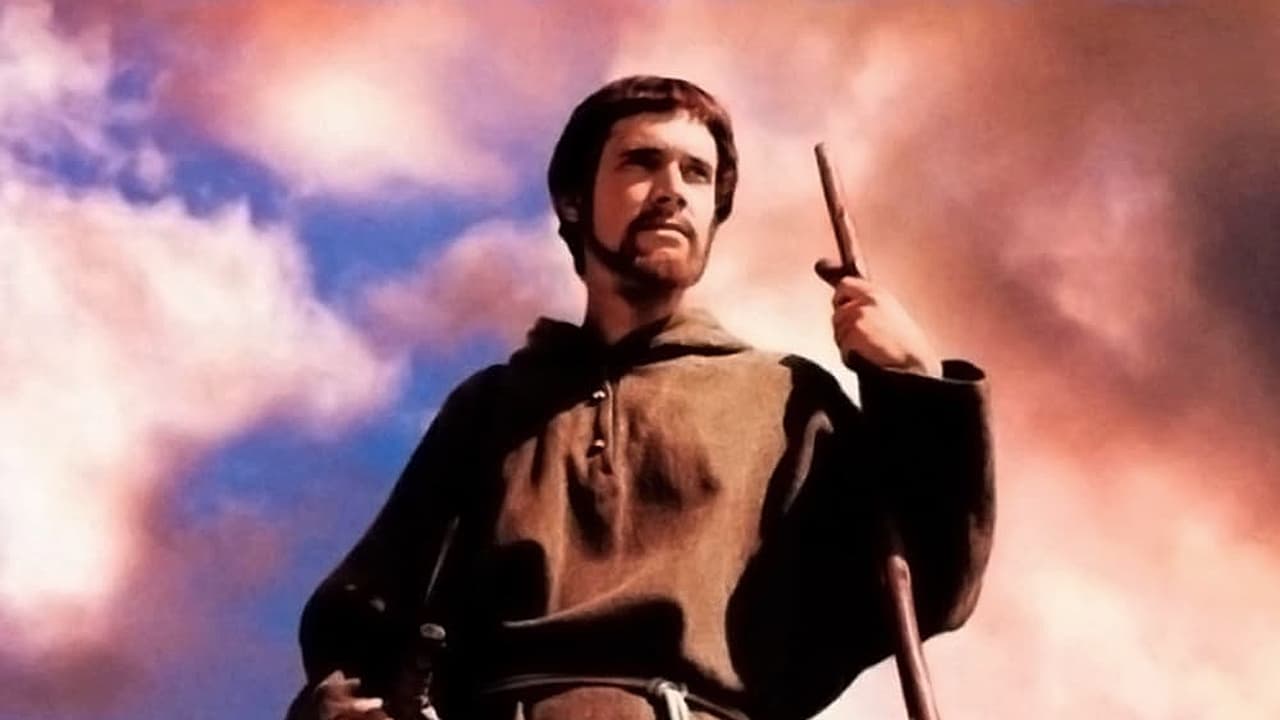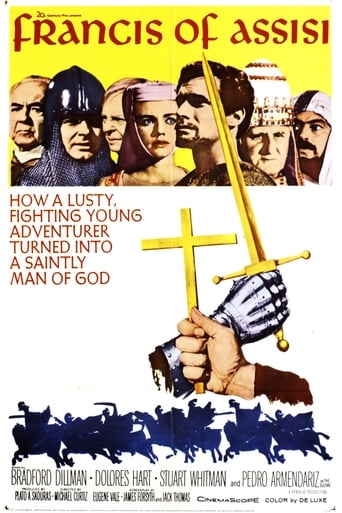

Highly Overrated But Still Good
... View MoreEntertaining from beginning to end, it maintains the spirit of the franchise while establishing it's own seal with a fun cast
... View MoreA movie that not only functions as a solid scarefest but a razor-sharp satire.
... View MoreTrue to its essence, the characters remain on the same line and manage to entertain the viewer, each highlighting their own distinctive qualities or touches.
... View MoreAs dry as dust, "Francis of Assisi" feels more like an academic exercise than a heartfelt exploration into the life of a man who was called by God. I watched this with my Catholic mother-in-law and she said it was like a film the nuns at her old Catholic school took her class to see, which even the nuns became bored with. Pedestrian, plodding, uninspired, paint-by-numbers, and going through the motions. To try to make up for this, the soundtrack is bombastic and vacuous. If you want to watch a film about this interesting and influential man, I suggest you watch "Brother Sun, Sister Moon" instead. That film is a little dated, but vastly superior to "Francis of Assisi." It conveys genuine emotion, and you get the feeling you're watching the life of a flesh-and-blood person. The four stars are for the authentic setting of Assisi and the surrounding territory.
... View MoreFairly uninteresting, but not particularly offensive. This is the most complete, most straightforward Francis of Assissi movie out of the four I've recently watched (including The Flowers of St. Francis (Rossellini), Brother Sun, Sister Moon (Zeffirelli) & Francesco (Cavani)). Somewhere in the middle of the film, I brought up the Wikipedia page about the saint, and it read pretty much like the script of this movie. The production is quite nice, but one would think the tale of a man who chose to live his life in poverty wouldn't concentrate so much on sets and costumes. Bradford Dillman is forgettable as Francis. Stuart Whitman plays his rival for Clare's love (of course, Clare's love for Francis is purely religious). The addition of this love triangle is perfectly representative of old Hollywood's frequent ridiculousness. The only person who really rises to the occasion is Dolores Hart as Clare. She's quite good. Two years after this film was made, she actually became a nun. She's a member of AMPAS and is the only nun who votes for the Oscars.
... View MoreI had seen bits and pieces of this one some 22 years ago on Italian TV, while I was convalescing from an operation! Again, this is a highly popular filmic subject: there are at least 6 versions, half of which I've watched, including Roberto Rossellini's sublime THE FLOWERS OF ST. FRANCIS (1950).Bradford Dillman gives a sensitive portrayal of the beloved saint, and the supporting cast is equally well chosen: Dolores Hart and Stuart Whitman complete a fictional romantic triangle; Finlay Currie and Cecil Kellaway play high church officials; Pedro Armendariz is a sympathetic Arab ruler; while Mervyn Johns appears as Francis' most loyal disciple.The initial display of pageantry - with which director Curtiz is clearly more at home, being an expert in the field - is a welcome counterpoint to the mostly turgid solemnity of the film's second half. Generally workmanlike rather than inspired, it does have the occasional moving passage (I also happen to share the character's affection for animals); besides, the film is buoyed by a fine Mario Nascimbene score and the advantage of location shooting.No worse or better than many contemporaneous religious epics, the film is still worthier of consideration than Leslie Halliwell's two-word dismissal ("tedious biopic") would suggest...
... View MoreBradford Dillman is very sympathetic as St. Francis of Assisi and this is a pleasant surprise after seeing him as a vicious cold blooded killer in Compulsion. We are also familiar with him as a trodden down fall guy in Circle of Deception. Stuart Whitman fresh from The Story of Ruth where he won his lady love as Boaz loses out in this one when Claire (later to be canonized Saint) decides to follow the example of Francis and become a nun.This film version of the life of St. Francis has long been a staple Beta videocasette and later VHS at most Catholic bookstores. There should be a videodisc by now.
... View More